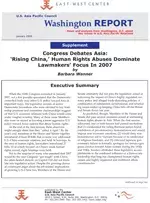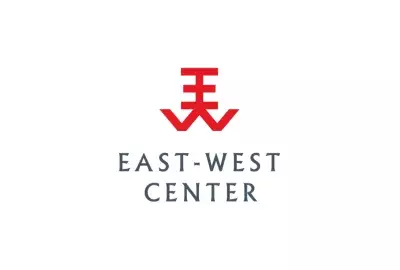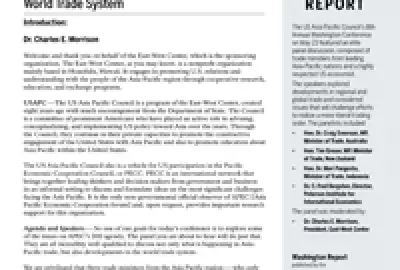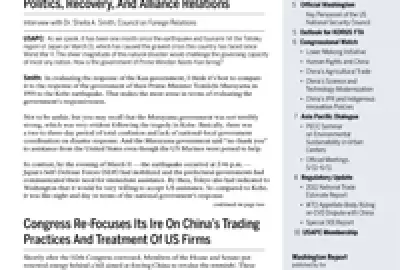Error message

|
When the 110th Congress convened in January 2007, not a few pundits speculated that the Democraticcontrolled body may affect U.S. policy toward Asia in important ways. The legislative records of senior Democratic lawmakers who were elevated to key leadership positions and committee chairmanships suggested that U.S. economic relations with China would come under tougher scrutiny. Many of these same Members also were on record as favoring a more aggressive U.S. policy toward Asian nations that abuse human rights. At the end of the first session, these observers might smugly claim that they "called it right." By the year's end, members of the House and Senate together introduced at least 30 bills that in some way addressed U.S.-China economic relations and held 34 hearings. In the area of human rights, lawmakers introduced 27 bills, 10 of which focused on China's weak human rights record; eight hearings were held. But to the surprise of many who assumed that 2007 would be the year Congress "got tough" with China, the often-heated rhetoric on Capitol Hill did not translate into legislative action. Despite the growing chorus of constituent angst about the job-related implications of growing U.S.-China ties, Members of the House and Senate ultimately did not pass the legislation aimed at redressing the impact of China's highly regulated currency policy and alleged trade-distorting policies. A combination of substantive, jurisdictional, and scheduling issues ended up keeping China bills off the House and Senate floors last year. As predicted, though, Members of the House and Senate did pass several measures aimed at addressing human rights abuses in Asia. When the first session adjourned, one or both houses had passed resolutions that (1) condemned the ruling Burmese junta's brutal crackdown of pro-democracy demonstrators and would impose new economic sanctions, (2) would deny nonhumanitarian aid to Vietnam because of its intolerance of religious freedoms, and (3) criticized Japanese government's failure to formally apologize for certain egregious conduct toward Asian women during the 1930s and 1940s. Insiders attributed these legislative accomplishments to the combined influence of a Democratic leadership that long has championed human rights causes and highly organized and mobilized ethnic constituencies. |
|
When the 110th Congress convened in January 2007, not a few pundits speculated that the Democraticcontrolled body may affect U.S. policy toward Asia in important ways. The legislative records of senior Democratic lawmakers who were elevated to key leadership positions and committee chairmanships suggested that U.S. economic relations with China would come under tougher scrutiny. Many of these same Members also were on record as favoring a more aggressive U.S. policy toward Asian nations that abuse human rights. At the end of the first session, these observers might smugly claim that they "called it right." By the year's end, members of the House and Senate together introduced at least 30 bills that in some way addressed U.S.-China economic relations and held 34 hearings. In the area of human rights, lawmakers introduced 27 bills, 10 of which focused on China's weak human rights record; eight hearings were held. But to the surprise of many who assumed that 2007 would be the year Congress "got tough" with China, the often-heated rhetoric on Capitol Hill did not translate into legislative action. Despite the growing chorus of constituent angst about the job-related implications of growing U.S.-China ties, Members of the House and Senate ultimately did not pass the legislation aimed at redressing the impact of China's highly regulated currency policy and alleged trade-distorting policies. A combination of substantive, jurisdictional, and scheduling issues ended up keeping China bills off the House and Senate floors last year. As predicted, though, Members of the House and Senate did pass several measures aimed at addressing human rights abuses in Asia. When the first session adjourned, one or both houses had passed resolutions that (1) condemned the ruling Burmese junta's brutal crackdown of pro-democracy demonstrators and would impose new economic sanctions, (2) would deny nonhumanitarian aid to Vietnam because of its intolerance of religious freedoms, and (3) criticized Japanese government's failure to formally apologize for certain egregious conduct toward Asian women during the 1930s and 1940s. Insiders attributed these legislative accomplishments to the combined influence of a Democratic leadership that long has championed human rights causes and highly organized and mobilized ethnic constituencies. |







